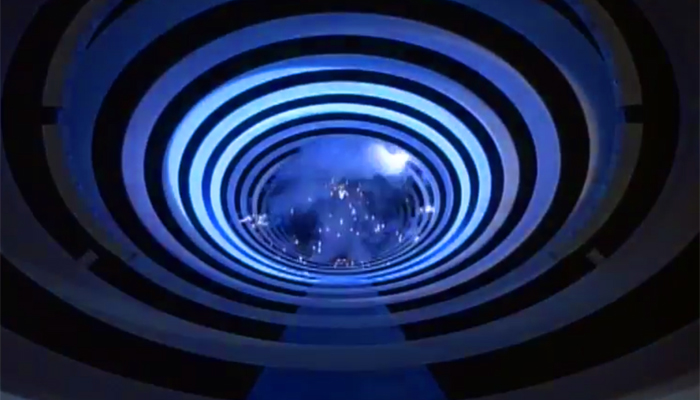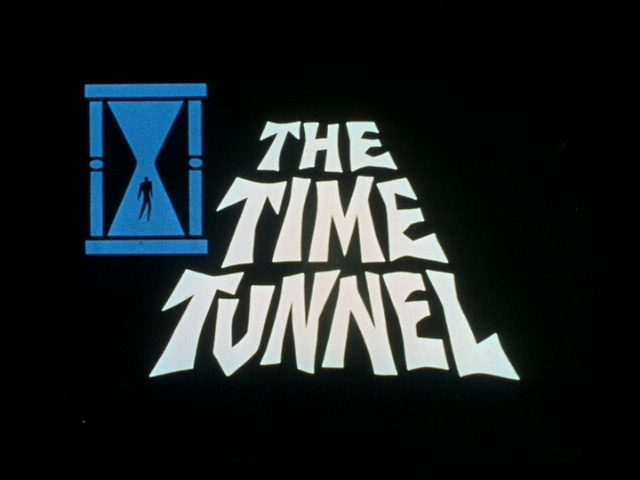
In 1966, Irwin Allen launched the most expensive television show of its time. Called The Time Tunnel, the series followed the efforts of two explorers lost in time and their attempts to return home. Although a theme used in later series like Fantastic Journey, Quantum Leap, Stargate, and Sliders, The Time Tunnel was the first series to make the attempt.
In the pilot episode, a top secret U.S. Government program is attempting to build a time machine, a mechanically generated shaft that cut through the past and future. The theory and equipment are still under development, however.
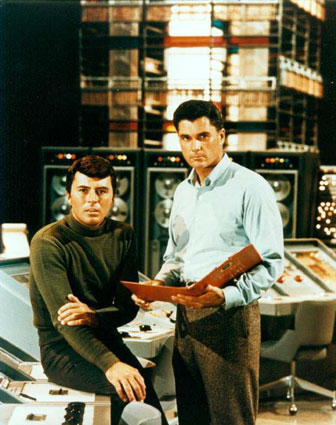
When a visiting Senator arrived intent to cut off funds for the $7 billion project. Professor Tony Newman jumped into the tunnel and found himself in the year 1912 on the Titanic just hours before it would sink. Professor Douglas Phillips followed him in a rescue attempt that failed, leaving them both trapped in time. The team left behind was constantly trying to repair the time tunnel to bring them back, but to no avail. Each subsequent week, they would either find themselves at some major historical event or battling aliens in the future.
Strangely, after the filming the first few minutes of the pilot, the supporting cast never worked with the stars again. While Drs. Newman and Phillips were traveling throughout the world and time, the rest of the cast were relegated to dealing with emergencies in the control room. One of the key scientists left in the control room was played by Lee Meriwether (Miss America 1955).
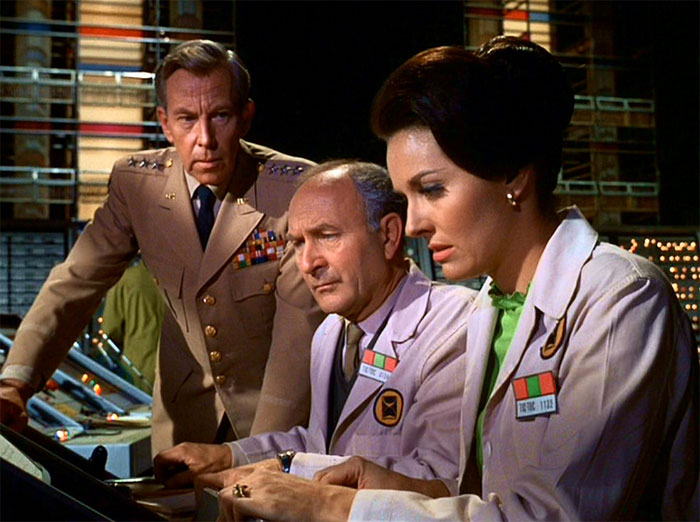
The actual control room was compiled from surplus NASA computers and other discarded electronic equipment from closed government facilities. Many of the props were taken from the 1964 Voyage to the Bottom of the Sea and 1965’s Lost in Space, and concurrently were shared with the 1966 Batman series. Most were again used throughout the 1968 series Land of the Giants.
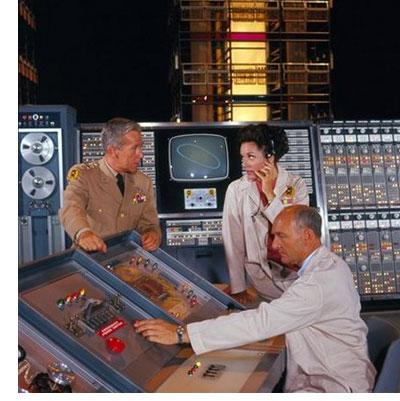
Like most Irwin Allen Productions, Time Tunnel was often criticized for its weak script dialog and plotlines but the fast-paced action and suspense was what made Irwin Allen shows successful. Writers were instructed to keep dialog short and include fist-fight scenes wherever possible!
After Time Tunnel was (inevitably) canceled:
James Darren, who played Dr. Tony Newman, later had a successful singing career that he temporarily revived decades later as the holographic nightclub singer, “Vic Fontaine” on Star Trek: Deep Space Nine. Mr. Darren passed away at age 89 on September 2, 2024.
Robert Colbert (Dr. Doug Phillips) continued to act, appearing as a guest star in such shows as Hunter, Wings, and Baywatch.
Lee Meriwether (Dr. Ann MacGregor) concurrently appeared as Catwoman in the 1966 Batman movie and would go on to appear as Losira in the Star Trek episode “That Which Survives”; she has continued working well into the 21st Century.
Whit Bissel (Lt. General Heywood Kirk) was the evil scientist who turned Michael Landon into a half beast in 1957’s I Was a Teenage Werewolf. He worked steadily as a guest star on many television shows, including Dukes of Hazzard, The Incredible Hulk, and Hart to Hart. Mr. Bissel passed away on March 5, 1996 at the age of 86.
John Zaremba (Dr. Raymond Swain) went on to guest star on many shows and TV movies until his death at 78 on December 15, 1986.
